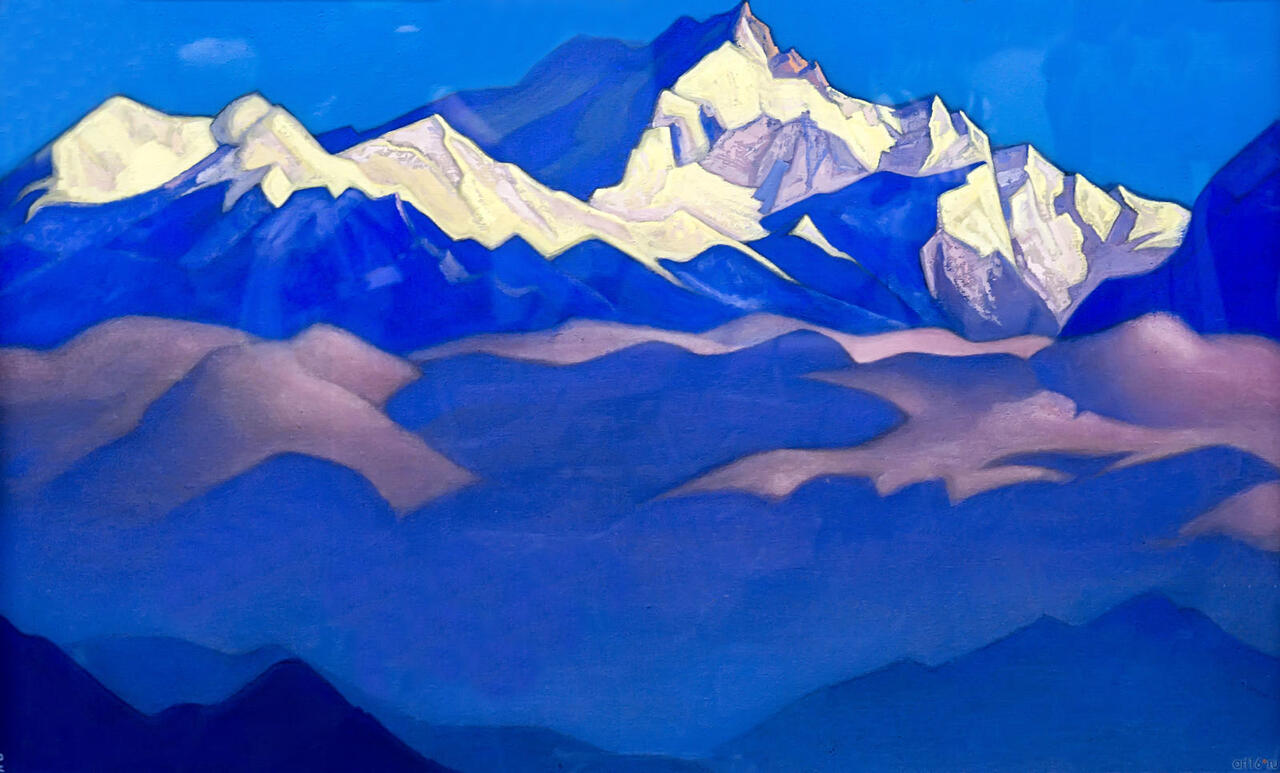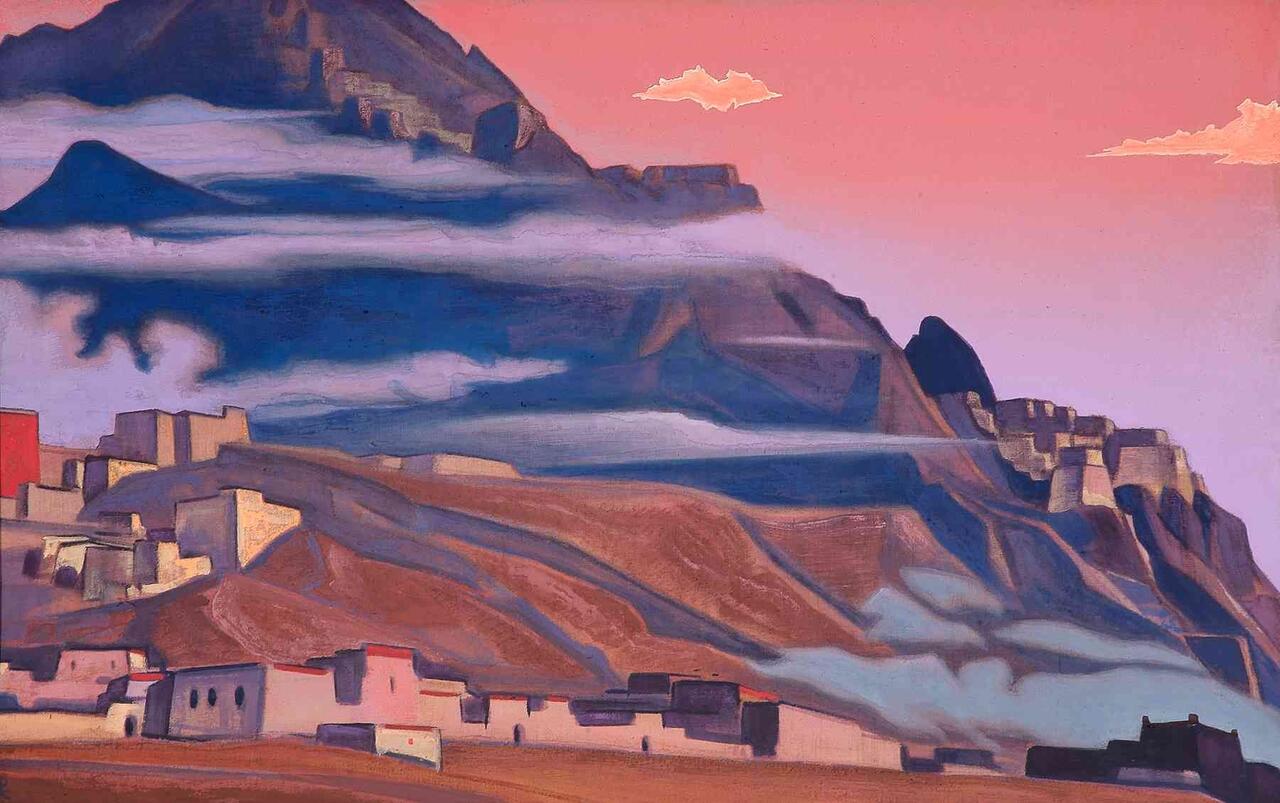Fascination of the unknown (and mountains)
On the first sight Alexander Scriabin, Nicholas Roerich and H.P. Lovecraft might not have so much in common. The were all people of different talents: Scriabin as a composer, Roerich as a painter and Lovecraft as a writer. And yet there is one element which connects them together, which connects the spirit of their times/age (Zeitgeist).
Introducing Scriabin, Roerich and Lovecraft
The times in which they all three lived were roughly overlapping. Whereas there is no evidence whether Scriabin met the other two, there is plenty of evidence that Nicholas Roerich and H.P. Lovecraft met, and were aware of each others’ existence. Yet, it would be very much imaginable to see Roerich and Lovecraft in the Moscow apartment of Scriabin, because the latter enjoyed meeting contemporaries and share ideas with them. All these three people embody the spirit and the core idea behind the Scriabin Club.
Himalaya Mountains - the connecting element
So what is the connecting element between these three gentlemen? If you would answer this question with one word it would be: Mountains.
Indeed Roerich, Lovecraft and Scriabin shared the fascination of mountains. Let’s see some examples of that:
Scriabin had the fixed idea to perform his masterpiece (which he unfortunately never finished), the mysterium (listen here) in the Himalaya mountains. There are other projects bringing Scriabin’s music to the Himalaya mountains, for example the Scriabin in the Himalayas initiative (trailer) by Michael Hardy and Matthew Bengtson. In the end, even Scriabin’s Prometheus: Poem of Fire has a clear storyline that can be connected to the concept of mountains.
Roerich has a very clear connection to the Himalaya mountains: In the later part of his career he lived in North India and produced a lot of masterpieces of paintings of the Himalaya mountains.

At the Scriabin Club we also use his paintings for the exact reason of philosophical parallels to the spirit of Scriabin.
Lovecraft is similiar interested in the mysterious and uncanny. One of my favourite works of his is At the mountains of madness. Not only is this work specifically connected to mountains, but he directly references paintings by Roerich:
The last lap of the voyage was vivid and fancy-stirring, great barren peaks of mystery looming up constantly against the west as the low northern sun of noon or the still lower horizon- grazing southern sun of midnight poured its hazy reddish rays over the white snow, bluish ice and water lanes, and black bits of exposed granite slope. Through the desolate summits swept raging intermittent gusts of the terrible antarctic wind; whose cadences sometimes held vague suggestions of a wild and half-sentient musical piping, with notes extending over a wide range, and which for some subconscious mnemonic reason seemed to me disquieting and even dimly terrible. Something about the scene reminded me of the strange and disturbing Asian paintings of Nicholas Roerich, and of the still stranger and more disturbing descriptions of the evilly fabled plateau of Leng which occur in the dreaded Necronomicon of the mad Arab Abdul Alhazred.
We clearly see that all three artists draw great inspiration from the mountains, very specifically the Himalaya mountains.
Try to combine
I encourage you to listen to Scriabin’s mysterium, see the following painting by Roerich and read the following excerpt by Lovecraft:

On some of the peaks, though, the regular cube and rampart formations were bolder and plainer; having doubly fantastic similitudes to Roerich-painted Asian hill ruins. The distribution of cryptical cave-mouths on the black snow-denuded summits seemed roughly even as far as the range could be traced. In spite of all the prevailing horrors we were left with enough sheer scientific zeal and adventurousness to wonder about the unknown realm beyond those mysterious mountains.
Why mountains?
The question remains why all three artist, Lovecraft, Roerich and Scriabin are so much inspired by mountains. Is it just a coincidence? What do mountains offer that is so meaningful to us?
This is difficult to answer with pure logic. Perhaps it’s a sense of achievement. Or perhaps it is just the mystery and lore. Who knows, maybe it is a special connection to Buddhism.
In any case, I think it would be redundant to answer this question in this post. If you read it, you will probably already have an idea.

